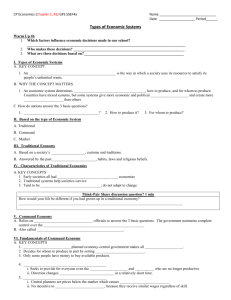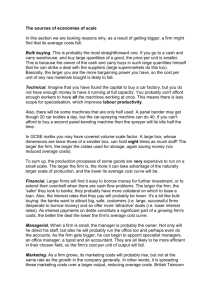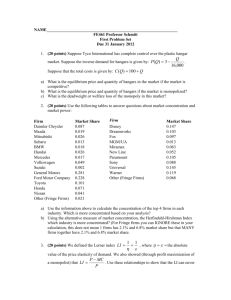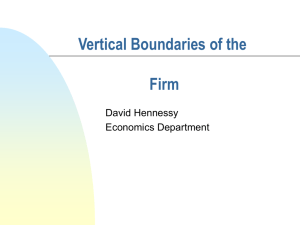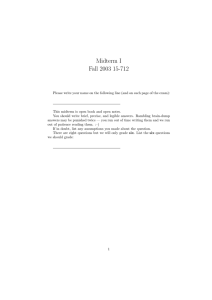Principles of management
advertisement
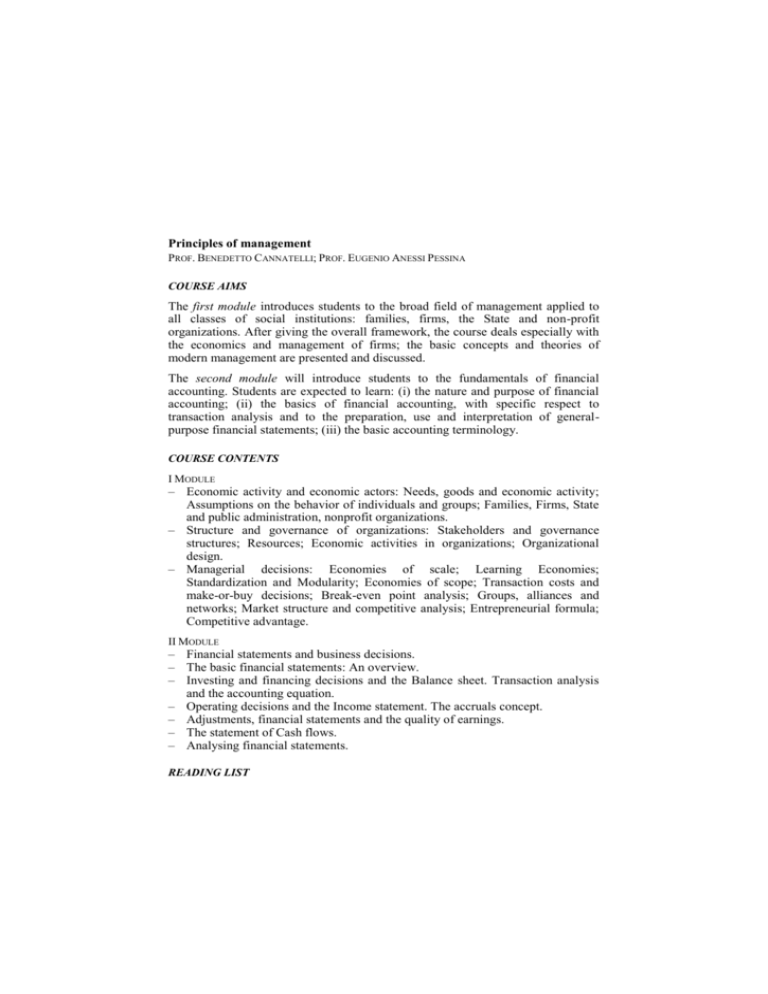
Principles of management PROF. BENEDETTO CANNATELLI; PROF. EUGENIO ANESSI PESSINA COURSE AIMS The first module introduces students to the broad field of management applied to all classes of social institutions: families, firms, the State and non-profit organizations. After giving the overall framework, the course deals especially with the economics and management of firms; the basic concepts and theories of modern management are presented and discussed. The second module will introduce students to the fundamentals of financial accounting. Students are expected to learn: (i) the nature and purpose of financial accounting; (ii) the basics of financial accounting, with specific respect to transaction analysis and to the preparation, use and interpretation of generalpurpose financial statements; (iii) the basic accounting terminology. COURSE CONTENTS I MODULE – Economic activity and economic actors: Needs, goods and economic activity; Assumptions on the behavior of individuals and groups; Families, Firms, State and public administration, nonprofit organizations. – Structure and governance of organizations: Stakeholders and governance structures; Resources; Economic activities in organizations; Organizational design. – Managerial decisions: Economies of scale; Learning Economies; Standardization and Modularity; Economies of scope; Transaction costs and make-or-buy decisions; Break-even point analysis; Groups, alliances and networks; Market structure and competitive analysis; Entrepreneurial formula; Competitive advantage. II MODULE – Financial statements and business decisions. – The basic financial statements: An overview. – Investing and financing decisions and the Balance sheet. Transaction analysis and the accounting equation. – Operating decisions and the Income statement. The accruals concept. – Adjustments, financial statements and the quality of earnings. – The statement of Cash flows. – Analysing financial statements. READING LIST For the first module AIROLDI-RAVASI (editors), Introduction to management: Cases & Readings, Part I, 2010 (AR). For the second module J.J. WEYGANDT-P.D. KIMMEL-D.E. KIESO, Financial Accounting, IFRS Edition, Wiley, 2013, 2nd edition, ISBN: 978-1-118-28590-9 In the two Modules further readings and exercises will be posted on Blackboard. TEACHING METHOD For both modules. Teaching methods include formal lectures as well as the discussion of short cases and exercises within supplemental recitation sessions. Class participation is strongly recommended. Students are expected to study all assigned materials and to complete specific homework assignments prior to each class meeting. In addition, they are encouraged to ask questions and to request that particular points be explained in more detail if they remain confused or uncertain about specific items. ASSESSMENT METHOD For both modules. Grading will be based on written exams. Ideally, students will take a midterm exam after the first four weeks and an end term exam at the end of the course. The final grade will be determined as the average of the two exams. Students failing the midterm exam will have to take a comprehensive exam. The comprehensive exam will be offered on the same date as the endterm exam and subsequently 4 more times over the academic year. Students failing the endterm exam or dissatisfied with the final grade will also have to take the comprehensive exam.
